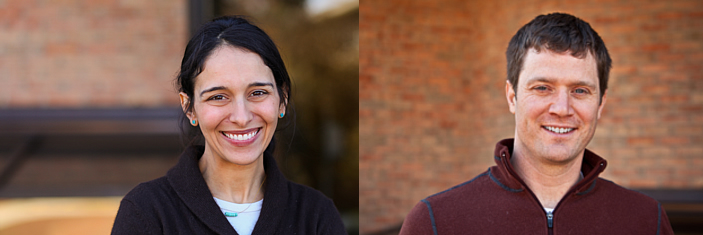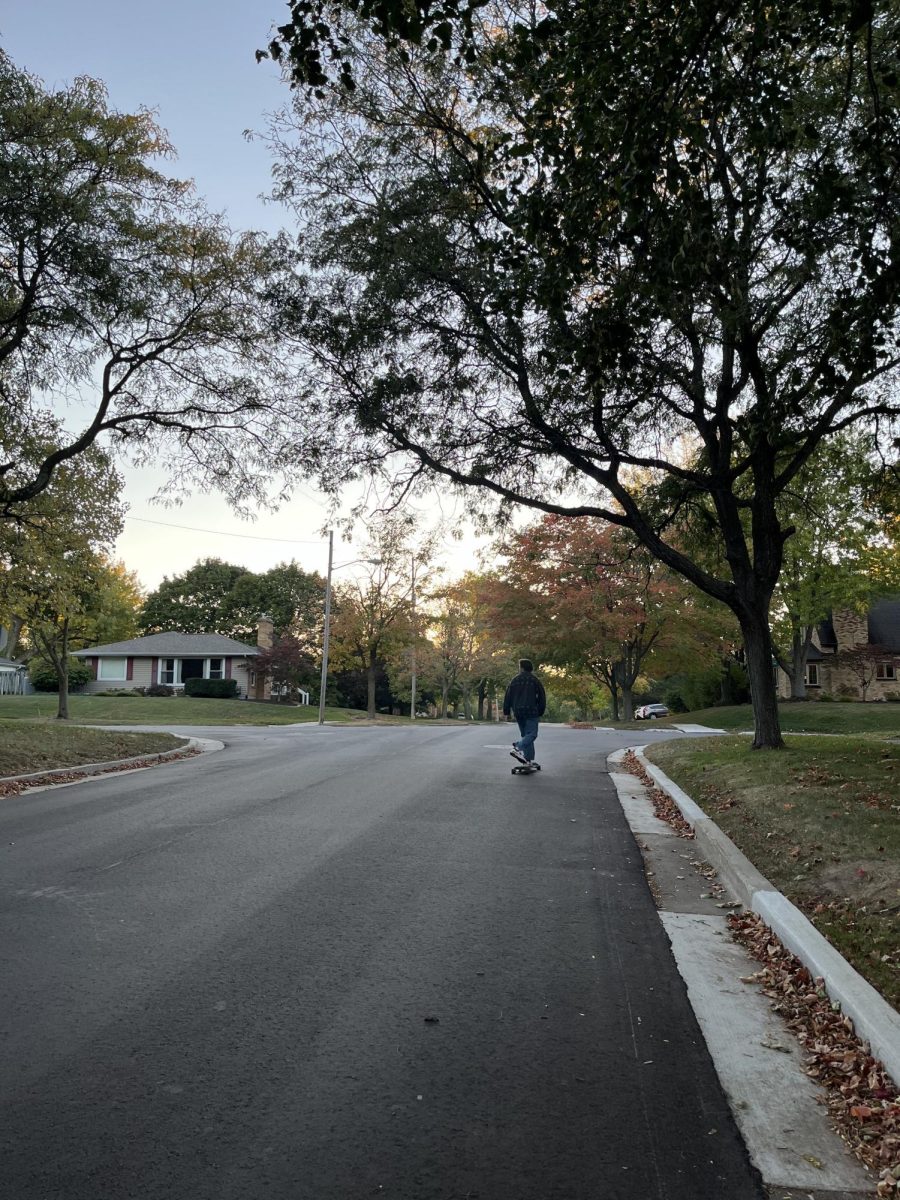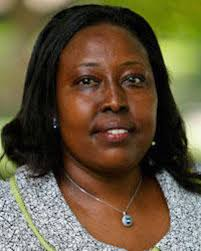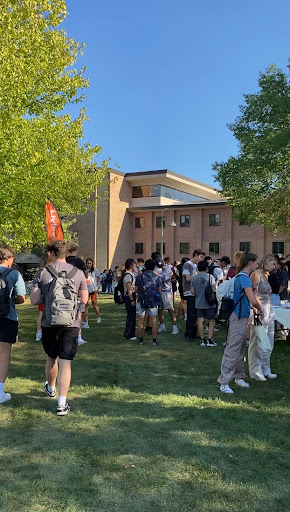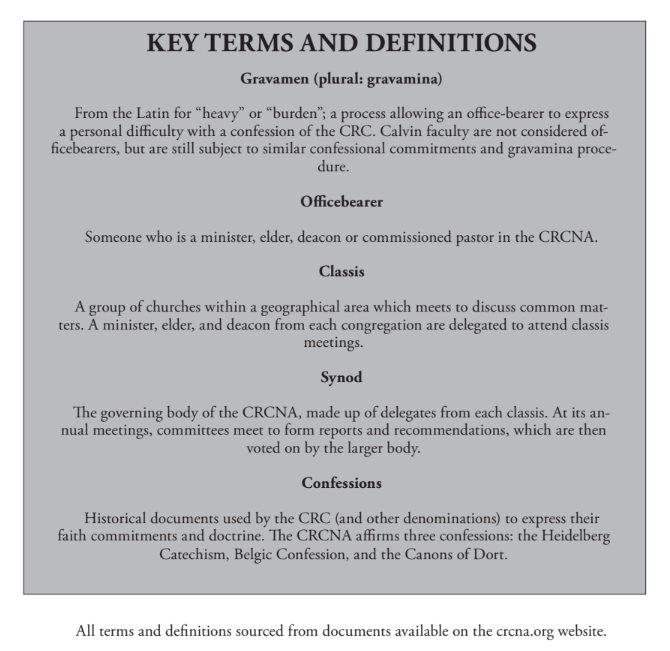Nate and Aminah Bradford have been co-associate chaplains for residence life at Calvin for the last seven years. They will be leaving their roles here at the end of this academic year so Aminah can pursue further theological studies at Duke Divinity School.
Chimes sat down with Nate to discuss his reflections on their time at Calvin as well as his hopes for the future.
Chimes: How did you originally come to Calvin seven years ago?
Nate: Well, originally it would be 20 years ago when I was a student here. I went to Grand Rapids Christian High School, and of course I was never going to go to Calvin, like we always say at Grand Rapids Christian High.
I ended up going to another school first, then doing an AmeriCorps year, and then realizing that Calvin was the college that had the most to offer. So I came here as a student and really enjoyed the place, but I would have laughed at you if you had told me that I was going to be on the chaplain team.
I think it was a constant working of who God was shaping me to be and what I cared about, as well as who I married — Aminah’s the one who wanted to be a college chaplain — that brought us to Calvin.
We had to do some coursework at Calvin Seminary before being ordained in the Christian Reformed Church, and this job came open and we applied for it and were hired.
Chimes: What have been the biggest challenges of your job here?
Nate: I think to stay conversant with the changing culture that students are more nimble at adapting to has been a challenge.
The Gospel message stays the same, but to be able to say it in ways that are most easily accessible is challenging, particularly considering that Calvin is becoming ever more diverse, so there’s need to learn many cultural contexts in order to best communicate with everyone here.
It’s kind of an exciting challenge, and it’s something both Aminah and I deeply care about.
To have the opportunity, whether it’s with a few guys at a Bible study in the morning or a few hundred people at chapel or LOFT — both are equally exciting. How to communicate what I think is a unique message in that context is very challenging and very rewarding.
Chimes: Have you noticed major changes at Calvin while you’ve been here?
Nate: I don’t think any two years have been the same, especially given the school’s financial troubles. But I think the work of caring for students rises above that, so it doesn’t seem to directly affect our work with students in major ways.
Chimes: What is your favorite memory from your time at Calvin?
Nate: There are several, but they are all in the same place — we’ve had Barnabi come to our house on a regular basis, and I picture several experiences of enjoying a good meal together, hearing music played in our backyard or baking bread in our outdoor oven with them.
That’s what comes immediately to mind. And I get to personally lead the seven seminarian students who lead the Barnabas teams in the dorms, and mentorship times with both the seminarians and Calvin students created meaningful relationships that I’ll cherish.
Chimes: Would it be fair to call the Barnabas program your legacy at Calvin?
Nate: Perhaps, that — and one of the other things I’m proud of is the jail ministry that we’ve developed. The Barnabas team we inherited in a different form that used juniors and seniors; we’re the only folks who have led it in the current form of sophomore students.
We inherited some real goodness there and certainly have tweaked it along the way. It has some of our fingerprints on it, but the jail ministry and the Perkins Fellows programs have been things I’ve helped birth.
So, to see something come from nothing to being part of campus culture like those things have has been very rewarding as well.
Chimes: What does the future look like for you and Aminah?
Nate: We’re going to be going down to North Carolina, and she’ll be studying for a doctorate of theology at Duke Divinity. I’ll be picking away at some courses in prison studies. That’s definitely the area I feel God is calling me to.
So I’d predict that my future will have something to do with helping to deal with this problem of mass incarceration and to mobilize the church against it. I think it requires a response to the degree of the civil rights movement. There’s no shortage of work to be done there.
Aminah and I are also deeply concerned with reconciliation with the land and care for God’s creation, so she’ll be studying how to care for creation in the context of developing a theology of home-making.
It looks like we’ll have a little hobby farm down in North Carolina, so we can practice some of what we’ve done here in the city to a higher degree — stewarding a corner of God’s creation.
And I hope to be back here. I don’t know in what capacity, but we haven’t sold our house here. We want to come back to Grand Rapids in a few years, and we’d love to continue to connect to students, disciple them and share life with them.
Chimes: Do you have any specific hopes for Calvin’s future?
Nate: I’d love to see it embrace kingdom theology further and further. It already does to some degree, but I think all of us could do it more. By “kingdom theology,” I mean asking questions about where there is injustice, asking questions about what needs to be reconciled, both personally and culturally or systemically.
Thinking about creation and thinking about race, there’s certainly some bleakness with headlines these days. I think there’s an opportunity for the church to witness and to really make an impact given the degree to which things are un-reconciled.
The church has an opportunity to come in and be agents of reconciliation and restoration and redemption. I hope Calvin can embrace that mission and show the world how it’s done.
This interview has been condensed and edited.



